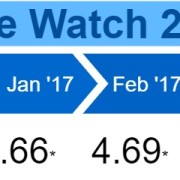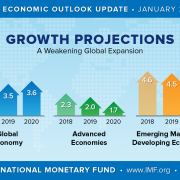Does PG&E’s Recent Bankruptcy Announcement Scare You?
Here Are The Things All Employees Should Be Aware of Regardless of Where You Work
By Justin D. Rucci, CFP®
As many of you are likely aware, PG&E recently announced a bankruptcy filing as the result of roughly $30B in potential liabilities stemming from recent California wildfires. Regardless of whether or not you work for a public utility, it is only natural to have questions around what to expect or what precautions you should be taking with your own money. With that said, below are some items you will want to remain cognizant of should more wildfires occur or things change.
Things to Think About:
401k
While your 401(k) account is technically “tied” to your employer, your contributions and vested matching contributions will not be at creditor risk should your company go bankrupt. As part of the Employee Retirement Income Security Act of 1974(ERISA), your 401(k) assets are required by law to be held in trust separate from the company. This means the assets are not commingled with the company’s general operating funds and are not accessible to the company should they need operating capital or funds to pay creditors. Your investments within the 401(k) are always subject to your own investment risk, so be sure to contact Warren Street Wealth Advisors if you would like guidance on the plan’s investment options.
Pension
Pension plans are another common concern for those worried about their company potentially filing for bankruptcy. Luckily ERISA comes into play here as well. As part of the enacting of ERISA, a government agency titled the Pension Benefit & Guaranty Corp.(PBGC) was formed. This agency is designed to step in to pay benefits should a private pension plan fall to bankruptcy. This agency will step in to pay receipt of your pension benefits at normal retirement age, annuity benefits to your survivors, disability benefits, and most early retirement benefits. The PBGC will not however pay for severance packages, vacation pay, or similar benefits. While benefits are guaranteed by the PBGC, they do enforce limits on what is covered by the agency, meaning it is possible that you would not necessarily receive your entire benefit. Maximum benefit guarantees can vary, but more information is available on the PBGC website here.
Retirement
How should you time your retirement if you are worried about your company going bankrupt? The short answer is, you probably shouldn’t dictate your retirement decision based solely on the possibility of a corporate bankruptcy. While the possibility of benefits being cut and severance package offerings are very real for companies that are struggling financially, often times it makes sense to take an individualized approach to analyze the situation before making a rash decision on retirement. Pension plans may change from a defined benefit annuity stream to a cash balance “lump sum” in some cases, but this does not necessarily mean it is time to retire. I would recommend speaking to an advisor should you have questions about your specific company and situation to determine what the best course of action may be for you.
What Should I Do?
For those interested in learning more about retirement and would like to meet with professional advisors, Warren Street Wealth Advisors hosts many events throughout the year. You can view our upcoming events here.
If you have any questions, contact info@warrenstreetwealth.com or call 714-876-6200. We are well versed in interpreting company benefits and are happy to talk through any of your questions or concerns.
 Justin D. Rucci, CFP®
Justin D. Rucci, CFP®
Wealth Advisor
Warren Street Wealth Advisors
Justin is an Investment Advisor Representative of Warren Street Wealth Advisors, a Registered Investment Advisor. The information contained herein does not involve the rendering of personalized investment advice but is limited to the dissemination of general information. A professional advisor should be consulted before implementing any of the strategies or options presented.
Any investments discussed carry unique risks and should be carefully considered and reviewed by you and your financial professional. Past performance may not be indicative of future results. All investment strategies have the potential for profit or loss. Changes in investment strategies, contributions or withdrawals may materially alter the performance, strategy, and results of your portfolio. Historical performance results for investment indexes and/or categories, generally do not reflect the deduction of transaction and/or custodial charges or the deduction of an investment-management fee, the incurrence of which would have the effect of decreasing historical performance results. Economic factors, market conditions, and investment strategies will affect the performance of any portfolio and there are no assurances that it will match or outperform any particular benchmark. Nothing in this commentary is a solicitation to buy, or sell, any securities, or an attempt to furnish personal investment advice. We may hold securities referenced in the blog and due to the static nature of the content, those securities held may change over time and trades may be contrary to outdated posts.
Sources
https://www.bankrate.com/retirement/your-pension-when-the-unexpected-happens/







